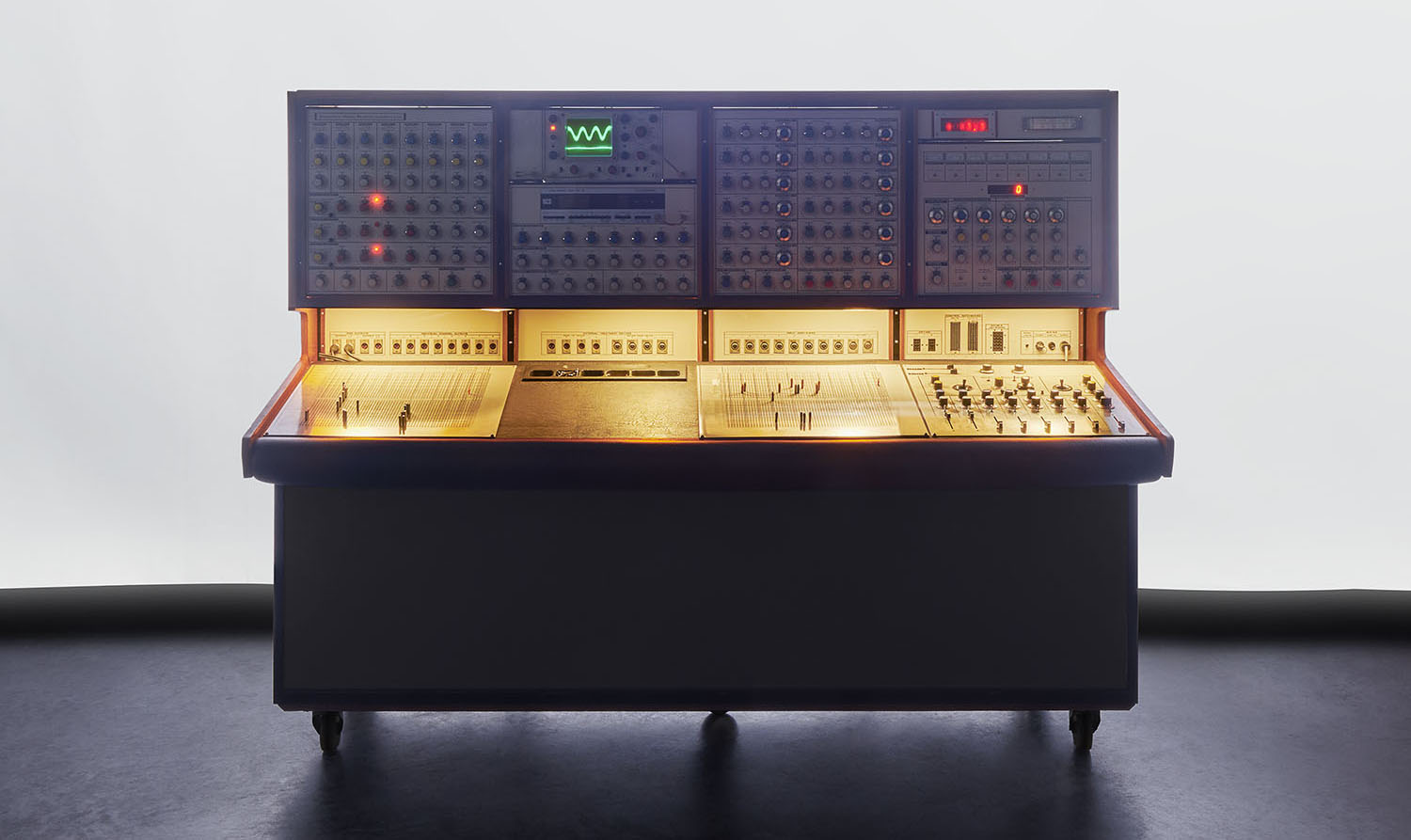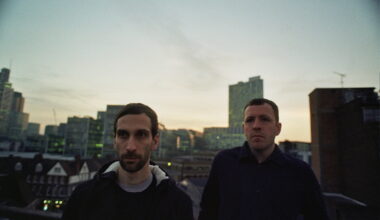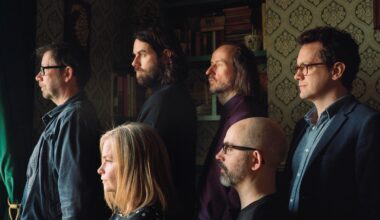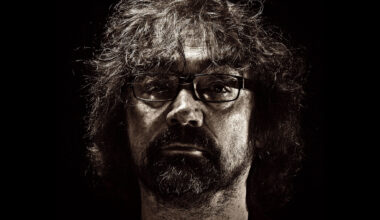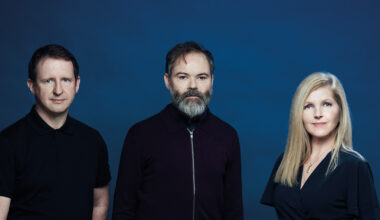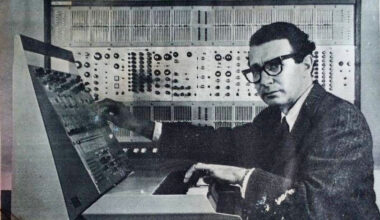Created entirely on an ultra-rare EMS Synthi 100, Soulwax have made the mythical instrument sound like you’ve never heard it before. But then you’d expect nothing less from the ever-inventive Stephen and David Dewaele
“When we made it, we thought that it would be for a very select audience,” says Stephen Dewaele of Soulwax’s new album, ‘DEEWEE Sessions Vol 01’. “Never in our wildest dreams could we have imagined this. We’ve already had to re-press it three times, which is crazy because it’s super-expensive with the book in it, but we wanted it to be a beautiful artefact.”
As Soulwax, brothers Stephen and David Dewaele have made hook-laden punk rock, dreamed up the kind of grungy disco that turned indie kids onto dance music around the turn of the millennium, and found fame through their laser-guided club remixes. Under their 2ManyDJs alias, they pioneered the mash-up, memorably meshing Destiny’s Child, 10cc, The Stooges and Salt-N-Pepa into unholy and thrilling matrimonies on their classic ‘As Heard On Radio Soulwax Pt 2’ mix compilation. But even when you consider this panoramic catalogue, their latest creation is remarkable.
‘DEEWEE Sessions Vol 01’ is a record entirely produced with an EMS Synthi 100, the ultra-rare British-built synthesiser. Only 31 were ever manufactured. Released on vinyl, packaged with a lavish 48-page book that tells the story behind the machine, and housed in a perforated patch bay cover, ‘DEEWEE Sessions Vol 01’ is more than simply a collector’s item. It’s a highly accessible album that ranks among Soulwax’s best releases.
The EMS Synthi 100 is a hulking, unwieldy piece of kit. Devised in 1971 by David Cockerell for Electronic Music Studios, the pioneering company Cockerell formed with Peter Zinovieff and Tristram Cary, it was mostly used for its abstract tones and was pressed into service by Karlheinz Stockhausen, the BBC Radiophonic Workshop and Meat Beat Manifesto, among others.
Avid gear gatherers, the Dewaele brothers had been looking for a Synthi 100 since 2003, when they were introduced to the smaller EMS synth, the VCS 3, while working with producer Flood on their defining ‘Any Minute Now’ album.
“He opened that world for us,” says David. “Three synths that are a big part of our lives to this day were introduced to us by Flood. One is the VCS 3, another is the ARP 2600, and the third is the Roland System 700. We still use them in almost everything we do. From knowing about the VCS 3, it doesn’t take long to find out there’s a Synthi 100, and that is a gigantic…”
“…Holy Grail for a lot of people,” finishes Stephen. “So we’d been trying to see if there was anywhere to get one. You read about them or hear someone talk about them, but you haven’t seen anyone use one.”
Soulwax are speaking from their Studio Deewee HQ in Belgium during a coronavirus-imposed break from touring. Behind them, vinyl crowds the walls from floor to ceiling. David interjects when he has a pertinent point or a wry aside, while the more garrulous Stephen takes up the lion’s share of the conversation. Both are good humoured and unguarded. Asked why they were so obsessed with obtaining a Synthi, Stephen grins and says, “So, what was it about the 12-oscillator, eight-filter analogue machine, which looks like a behemoth, that first attracted you?”. David goes on to tell how they came close to buying one in Montreal, but were scuppered at the last minute by a software mogul.
“We went to see this guy’s warehouse and there was a Synthi there, a bit dishevelled, but at that time we’d never spent much money on gear. We always used to buy everything really cheap – the stuff that other people didn’t like! So I remember we had two days thinking, ‘What should we do? How do we get this money?’. Then we found out he’d sold it to one of the founders of Microsoft for four times the amount he wanted to sell it to us for.”
Soulwax finally got the chance to use a Synthi 100 when they discovered there was one at the university in their home city of Ghent.
“By chance, our dad told us there was something at the university that was similar to what we had in our studio,” says Stephen. “It turned out this Synthi was Number 30, the penultimate model that was made. It had been under our noses the whole time, but we just didn’t know it.”
The Ghent Synthi 100 was housed at the Institute for Psychoacoustics and Electronic Music (IPEM) research facility, but it had been lying dormant for years. Although the IPEM had once produced sounds for Belgian TV programmes in a similar way to the BBC Radiophonic Workshop in the UK, in recent times their studies had shifted into the digital realm and away from music. Soulwax managed to convince the IPEM that they would look after the machine and refurbish it while the facility moved offices into a new wing at the university.
“They could see we were genuinely in love with it, even though we hadn’t worked on it or even heard it yet,” says Stephen. “It had some components that were not 100 per cent, some of the lights were out, the sequencer had always been broken, and they’d never really got it running. So we said, ‘Well, we’re building a studio, why don’t you just put it there? In the meantime, we guarantee we’ll try and get it working as perfectly as we can’.”
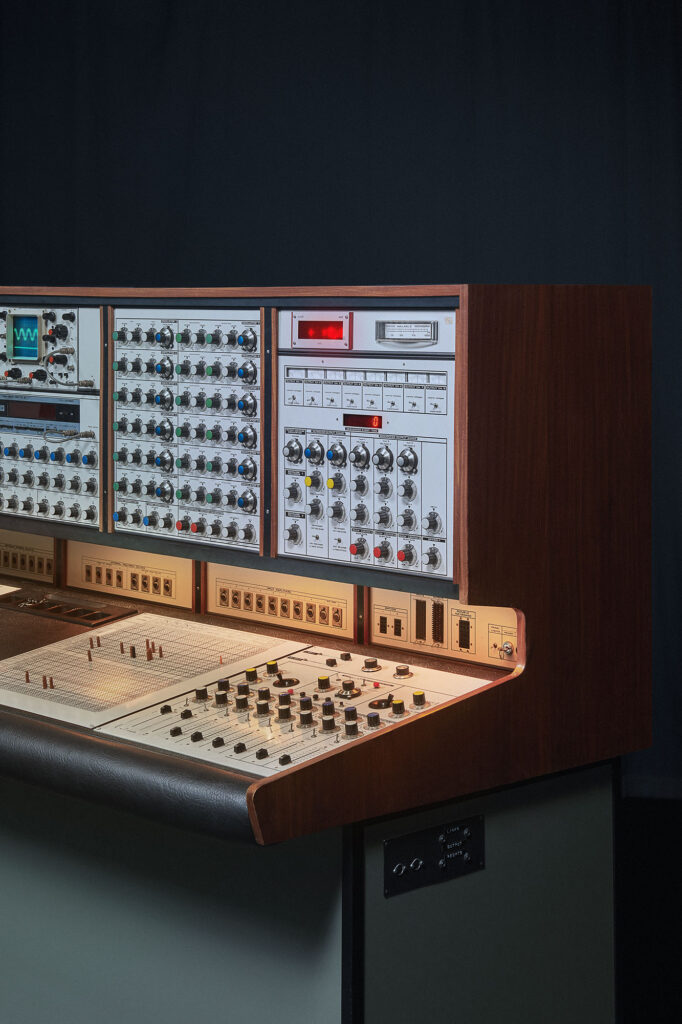
With the loan secured, Soulwax set about learning to use the Synthi and recording the results, aided by EMS repair guru Constantin Papageorgiadis. The brothers realised that these initial explorations could form the basis of an album, but they had a strong guiding principle – to utilise the synth in a modern way, for phrases, basslines and beats, quite unlike how it had been employed in the past.
“There’s enough avant-garde acoustic research music out there,” notes David. “We didn’t want to make an album with just a bunch of bleeps. There’s nothing wrong with that, but we felt it would be great if we did something that shows off the characteristics of the Synthi. So it’s not just the abstract sounds. They’re in there, but as the cherries on the cake of the chords and melodies.”
Considered an archaic piece of equipment by all but the most dedicated of electronic nerds, Soulwax have reimagined the Synthi 100 on ‘DEEWEE Sessions Vol 01’. ‘Movement 3’ is a trip into abstract disco techno, like something you might expect from The Emperor Machine, with intricate harmonics and sequences accompanying thumping kick drums. By contrast, ‘Movement 4’ is all fluttering ambient cascades and fragile electronic strains. Recasting the Synthi 100 as a gleaming contemporary tool rather than a dust-coughing relic, the Dewaele brothers teased out its wide-ranging capabilities, relishing the challenge of making an accessible record that could be enjoyed by anyone.
“Since Delia Derbyshire, very few people have seen this as something that could make normal instrument sounds,” says Stephen. “We didn’t want to make trumpets or stuff like that with it. The idea was, would somebody who’s really interested in the Synthi 100, and equally someone who has no idea what it is, still like this music? Would it cross over to both worlds?”
Still, this was far from an easy prospect. Soulwax had extensive experience of the VCS 3, both in their productions and live performances, but learning how to handle the Synthi 100 was another matter entirely. A huge analogue/digital hybrid encased in wood and covered in seemingly incomprehensible dials and switches, this cabinet of curiosities looks like a flight deck in some 1970s science fiction film. Notoriously hard to program and operate, it took the Dewaeles a little while to tame it.
“It’s erratic and untuneable,” says David. “There’s a reason why even the portable Synthi AKS wasn’t necessarily used as a synth. It’s because the oscillators are so uncontrollable.”
Drum sounds were particularly problematic, especially simulating the randomness of a human handclap. But the Synthi 100 was always designed for use with a computer, so the brothers harnessed the latest hardware modules and software to help them wrestle the giant into some semblance of order.
“Modern technology allows us to control oscillators now,” explains David. “It’s much easier compared to when we bought our VCS 3 in 2003 – that was like a wild, crazy animal – because there’s been such a big rise in small companies making modules to help deal with analogue synths. With this particular Synthi, Number 30, the configuration is such that it has a sequencer on the right-hand panel that works. Peter Zinovieff’s philosophy was that there always needed to be some computer element to manage the music, so we took that as far as we could. We had a laptop set up with an Expert Sleepers module, giving us better control over calibration, VCAs, how filters work and sequencing. We felt we were doing what Zinovieff had imagined.”
Get the print magazine bundled with limited edition, exclusive vinyl releases

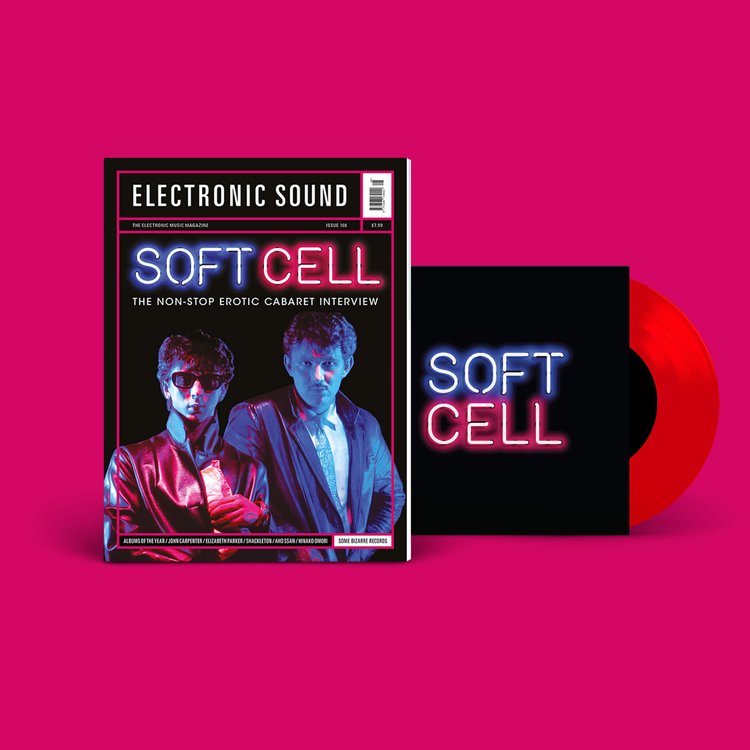
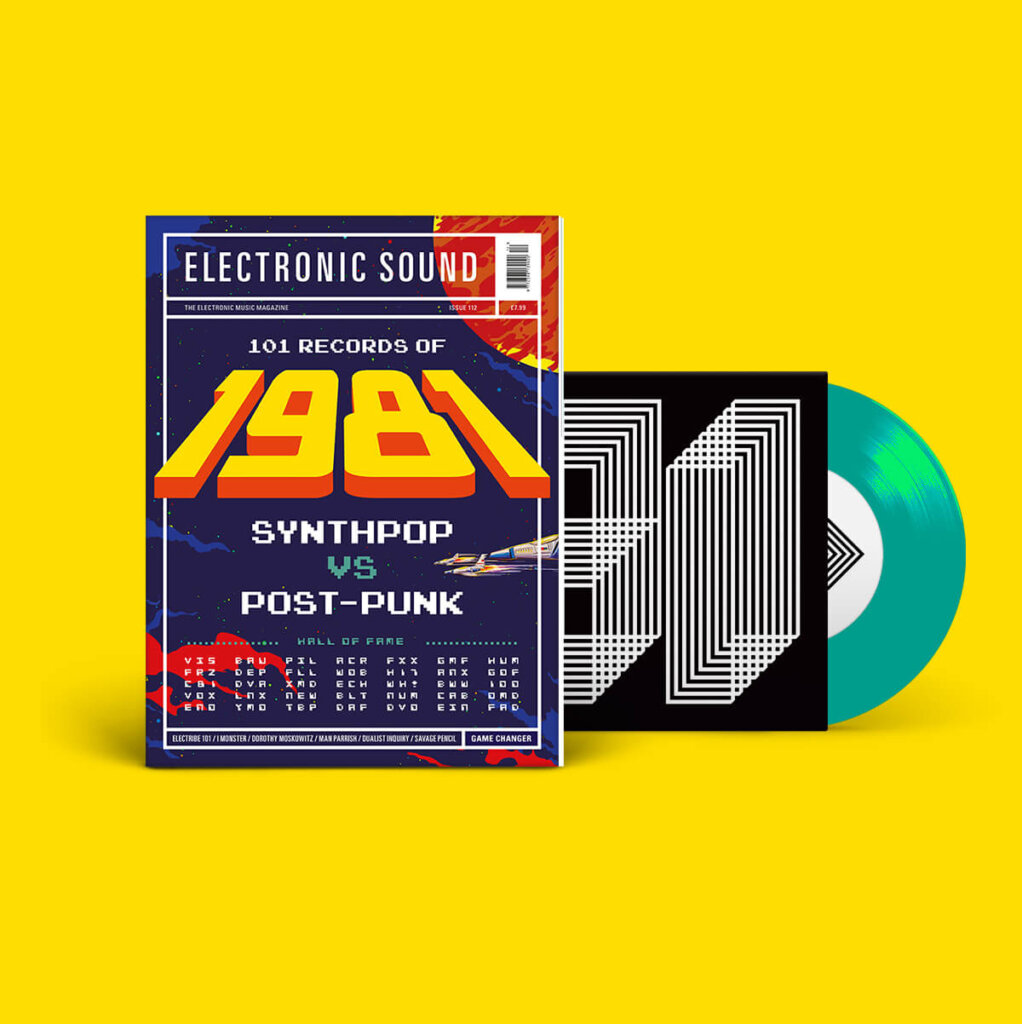
Throughout the process of making ‘DEEWEE Sessions Vol 01’, Soulwax discovered that the machine was even more musically complex than they had first thought. Getting the tunings right and recreating synth patches proved quite arduous, but it could do weird things that other units simply couldn’t do. Sometimes, the brothers would bring up a sound patch and leave the synth recording, at which point it would start to create tones and new directions of its own.
The idea of the Synthi as a seemingly sentient entity was highly appealing to the brothers, to the point where they view the machine as one of the composers of the album. Despite its age, its intuitive musical creation chimes with the current trend for artificial intelligence in music, explored by artists like Holly Herndon and Emptyset.
“We found if we left it on for a day or two, and recorded it once in a while, it would be like, ‘Oh my god, where’s it going now?’,” says Stephen. “The idea that it can generate sounds on its own was the science fiction part that we liked as well.”
“On some parts on the album, it wasn’t just Stephen and me writing it, it was also the beast itself,” adds David.
Soulwax released their first record in 1996. While they started out as more of a rock band, it was when they began to incorporate prominent electronics into their sound that they broke through. Their 2ManyDJs sets, mixing seemingly incompatible tunes into delirious and club-friendly combinations, seemed like a special form of alchemy. These irreverent collisions had an energy and style that arrived at just the right time.
The duo’s 2004 album ‘Any Minute Now’ chimed with the disco punk emanating from James Murphy’s DFA label and Trevor Jackson’s Output imprint, both of whom they later collaborated with. Tracks like ‘NY Excuse’ and ‘E Talking’ are classics of the era, helping to make the band a worldwide phenomenon. In the last few years, they’ve written the soundtrack for the film ‘Belgica’, while 2017’s ‘From Deewee’ is a sometimes lush and sometimes spiky electronic odyssey captured with three drummers and in one take.
Their remix work, which has encompassed everyone from Kylie Minogue and Robbie Williams to Daft Punk and Human Resource, continues to be as tight as ever. A recent respray of Marie Davidson found them matching the artist’s commanding voice with percolating beats and a cheeky sample from Outlander’s Belgian rave megablast ‘Vamp’, nodding to their country’s illustrious dance music history.
“We were fans of Marie for a long time,” says Stephen. “So when her record came out and they asked us, we were like, ‘Yes, of course’. Whenever music comes and we’re excited about it, things always happen. When we try to fit into something, that’s when we fail. When we do something for ourselves, that’s when it resonates with other people.”
Nowadays, Studio Deewee is the centre of Soulwax’s operations. Built in 2015, it’s a four-storey building incorporating various recording rooms, their vinyl stash, and something they describe as “an analogue synth and gear museum”. It’s a place where artists on their increasingly essential Deewee label – home to the likes of Charlotte Adigéry and Laima – can come and record. Since the pandemic has prevented them from leaving Belgium, the brothers have been more productive than ever at the studio.
“This is the first time in 20 years that we’re not travelling,” says David. “So we’ve got lots of plans.”
Although their last few pieces have found them using new creative methods, Soulwax see these as no more experimental than their past work.
“In our minds, this is no different from anything we’ve done before,” explains David. “We have a bunch of projects that excite us, that are quite cool and interesting. Are they experimental? We never think of it that way. We don’t feel like we did a Pierre Henry. We haven’t been trained to do a strange avant-garde thing.”
It’s perhaps notable that the new Soulwax offering is titled ‘DEEWEE Sessions Vol 01’, suggesting there could be more to come in the series – if the IPEM will let them have the Synthi 100 back for a while.
“It was kind of a way for us to tell people, ‘Hey, we are more than interested in making a second or a third volume’,” says Stephen. “The IPEM has the Synthi 100 now, but that’s also really nice for us. They’re talking about teaming up with other universities and doing some stuff together. This machine will definitely have a future now, which is amazing.”
‘DEEWEE Sessions Vol 01’ is on Deewee
